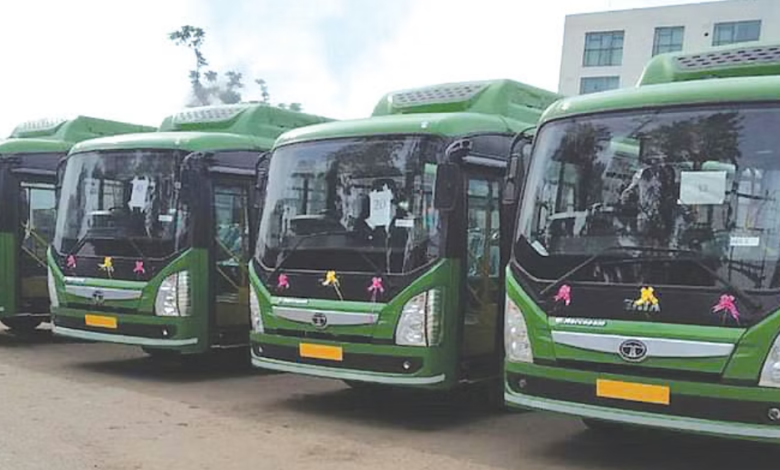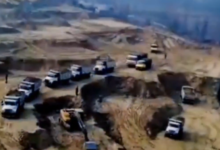Ordinary snag makes electric bus defunct for months in Kashmir capital Srinagar

Kashmir News Trust #KNT
As the Jammu and Kashmir Government is in the process of procuring a fleet of 200 electric buses, 100 each for the capital cities of Jammu and Srinagar under the Smart City Project, the 20 such buses procured in 2019 for Srinagar city have failed to make an impact. Insiders said that 8 buses are defunct for the past 9 months as there are no skilled engineers to make them operational.
As reported earlier, two hundred electric buses will soon ply on the roads in J&K’s Jammu and Srinagar cities as part of the government’s initiative to establish an environmentally, socially, and financially sustainable network of public transport.
General Manager Maintenance, Road Transport Corporation (RTC) Shakeel Ahmed Khan confirmed to the news agency Kashmir News Trust that 8 buses are lying defunct at the workshops as there are no experts to maintain them. “It is a costly bus and we are unable to maintain it as there is a huge gap between earnings and expenditures. We are unable to generate revenue,” he said.
For every defect in an electric bus, RTC requires an engineer from outside J&K. It takes time in maintenance as RTC doesn’t have that skilled staff. They call engineers from outside to maintain these buses.
Insiders say that these buses were procured in a hurry without taking the opinion of any expert or formulating a plan. One of the employees said that it is a costly affair to maintain an electric bus and RTC being a corporation running at loss can’t afford such hefty sums to maintain these buses.
“Kashmir is a place where business activities start from 10 onward and end before 6 in the evening. These buses are unable to generate revenue due to this factor. In fact, there is a huge gap between earnings and expenses. Revenue generation is less while expenses are more,” said an employee on condition of anonymity.
Only 12 buses are plying on Srinagar routes at present and the service for some routes has been suspended.
Insiders say that it was better to go for a route study, formulate a plan, and get the opinion of experts before introducing these buses in Srinagar.
“Much hype was given to these buses when introduced both in Jammu and Srinagar but no efforts were made to keep the engineers ready for the maintenance of these buses,” Nisar Ahmed, a local from Harwan Srinagar said.
Besides maintenance problems, these buses also lack critical backup which could render these vehicles defunct in the coming months.
The charging point at the city centre Lal Chowk is virtually defunct while the Bemina charging point witnesses a heavy load.
It takes a minimum of two hours for a bus to get charged and every vehicle has to return to the depot to prepare for the next journey. The lack of charging points adversely hampers the operations of these buses.
Pertinently, these 40 buses were procured at a whooping cost of Rs 40 crore by the Jammu and Kashmir administration.
The government has claimed that the induction of more electric buses will transform the transport system in both cities of Jammu and Srinagar. However, experts say that such buses may prove a white elephant for the government if proper planning is not done in advance.
In Jammu, the land has already been handed over to Tata Motors and the work for the establishment of a depot for electric buses is in progress.
Tata Motors and Chalo Mobility will work in collaboration with each other for the functioning of electric buses in both cities in coordination with Jammu Smart City and Srinagar Smart City Limited. Tata Motors will be responsible for supply, operation and maintenance of these buses while Chalo Mobility will deploy its consumer technology solutions to offer conveniences like Electronic Ticket Issuing Machines (‘ETIMs’), Automated Fare Collection System (‘AFCS’), Mobile App with Mobile Tickets and Mobile Passes Platform, Smart Cards Platform and Cloud Based Hosting to the commuters. [KNT]










